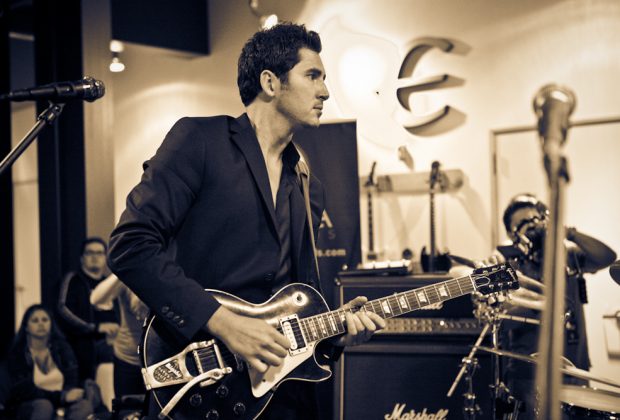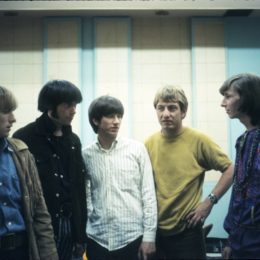It was six years ago that Chris Arena flew from New Jersey to Los Angeles to attend the Billboard Hollywood Reporter Film and Music Conference. His agenda was to establish key contacts for placements in film and television projects.
At the music supervision panel there was a bin. “The supervisors said, ‘If any artist or manager wants to submit their music, they can drop it in,’” Arena remembers. “During the panel they pulled out five CDs and the last one was mine. Paul Glass, who did the music for General Hospital, played it and liked the sounds. I spoke with him afterwards, he gave me his business card, and for six years I emailed the guy a new song every month. Finally, a year and a half ago, he asked me to do the song that became ‘Dreams’ for General Hospital.”
“Dreams” was nominated for a 2016 Emmy Award for Outstanding Original Song in Daytime Drama. MTV shows Catfish and Scream have utilized Arena’s songs, as did Pretty Little Liars, which featured five tracks on Season 4. Additional placements include TV Land’s Younger and the feature film This Thing With Sarah.
With his intimate voice and understated eloquence, Chris Arena's artistry is subtle and evocative, reflecting his background as a singer/songwriter. He has recorded full-length CDs, performed extensively in clubs and listening rooms and is envisioning recording a new artist project. But his focus is squarely on sync. “I found a niche and kept on it,” he says.
Arena notes how songs fit into visual mediums when they fill a required role. “They have to be effective on a personal level, but applicable to picture. Supporting the story, Arena says, is key. “It can’t take the audience away from what they’re seeing. The challenge is finding a lyric that’s open enough to draw people in and make them relate to the moment, but not so much that they completely miss out on the visual.”
Music is in Chris Arena's heritage: His grandfather, a jazz musician in New York in the ‘50s, purchased a classic 1959 Gibson Les Paul Standard guitar that resides in the collection of the Grammy Museum in Los Angeles. Arena recently performed on the instrument at a special event at the Gibson Showroom. “The wood is so old and it resonates so beautifully that when you hit a note and hit another note you have all of these overlapping harmonics. When you play that guitar it’s like a choir of angels.”
Recording at his home studio in Venice, CA, Arena employs a stripped method of recording that is based around one microphone, a Soundelux 251 condenser. “I used to have a lot of gear,” he says, “but the work flow is so important. I have to streamline the output to get to the idea. I have the mic, a preamp and a compressor. I hit one button and I record.”
Producing, Arena says, is an integral prerequisite for a successful career in creating music for projects. “You’ve got to have all of the chops: writing, producing and networking with people. It’s so much more than music; it’s recording processes, the places you go, the people you interact with and the things you think about when you play. You have to be so ‘eyes open’ all of the time to make a career out of this.”
Rejection, he observes, goes with the territory. “Being able to shake that off and move forward with a focal point is the most important thing. If you want to do this, do it now before you get married and have kids. Try it out and see what happens. Play your ass off and play it from the heart. I Googled music supervisors and went to conferences where they were. I did everything I could to put myself in their world.”
Hits and stardom, Chris Arena advises, are more treacherous goals to pursue. “Even if you get a hit, it’s still always gig to gig,” he says. “If you’re trying to be famous, go juggle lizards or do something else crazy. Music is for someone who has a true passion.”
Photo by Casey Curry
For more information, contact Ray Costa, Costa Communications at costacomm.com.












